This week’s message (Friday 04 November 2022)
We hope you and your child(ren) managed to have some time over the half-term to rest and recuperate. Now that we’re firmly settled in to the school year, this week’s message has three important reminders, and ends with an invitation to share your views about Leeds admission policy…
Our expectations for attendance
Our attendance rate for Autumn 1 was 94.4% – this is lower than the national figure of 95.1% (subject to change) for primary schools.
Our aim is for the whole-school attendance to be at least 97%. Well done goes to our Reception, Year 2 and Year 3 class – all have attendance over 95%.
The government is trialing a new service – check out national attendance figures, updated regularly.
Read our attendance policy. Remember, we don’t authorise unnecessary term-time absences. Holidays during term time are likely to result in a penalty notice.
Our expectations for home learning
At St James’ CE Primary, we expect every child to read at home, every day. The most important thing you can do at home is to make sure this is happening – reading independently and reading aloud together.
The reading should be at least 10-15 minutes and can include books, comics, websites – any reading! Please comment in your child’s Reading Record at least once a week.
There are two other things we expect your child to do at home each day:
- spend about ten minutes each day practising number facts, like number bonds to ten (eg 3+7 and 4+6) and learning times tables; NumBots (mainly for children in Key Stage 1) and TimesTables Rock Stars (Key Stage 2 children) will support number fluency, as will practice in the car or walking to school (eg chanting forwards, backwards and alternating as you count through can all help)
- spend a similar amount of time practising spellings, using the homework sheet we send home each week to see the weekly list of words to learn in preparation for a test on the following Friday (your child could use the words in written sentences or stories and in conversations)
As well as these three daily activities, there are weekly Talk Time prompts (set out on the homework sheet we send home each Friday and published on our website) and Living and Learning ideas (check these out in the school calendar, usually on Mondays – next week’s is I consider the views of others).
You’ll find occasional extra ideas in your child’s Class News page, too.
Read our guide to all the home learning that your child can do.
Our expectations for uniform
This week in school, we’ve been enjoying a themed week: Me and My Community, a celebration of all the different communities to which we belong. We want our children to come to school proud of being part of their school community – uniform is an important part of this. Please take a moment to check our uniform policy – for example, is your child coming to school with long hair tied back, wearing discreet earrings (if any), and the right shoes?
Of course, we welcome the occasional non-uniform day as a break from routine to celebrate or raise funds. Coming up is the Children in Need fund-raising event for which we’ll have a non-uniform day. However, on days like this, we do still expect pupils to dress appropriately and respectfully for school. Check out the policy for more details.
Leeds Admission Policy
Leeds City Council is running a public consultation on the 2024/2025 admission policy for Leeds community and voluntary controlled schools. Share your views – you have until 07 December.
If you’re celebrating Bonfire Night, have a safe one, and – as always – a happy and healthy one.
04 November 2022
Below are the new spellings for the next two weeks. On the first week, use the look, say, cover, write, check method. On the second week, write the spelling words using dots then connect the dots by tracing over them.
- is
- love
- me
- my
- no


Term 2 Week 1
Welcome back to Reception!
We hope you all had a lovely half term break and are ready for an exciting term 2 in school.
This week we have been learning more about our local community and all the people that can help us and others. We were excited to meet Olly the owl from WISE and one of our local police officers PC Masters.
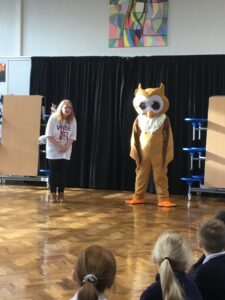
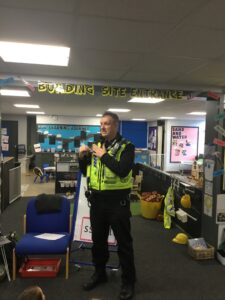
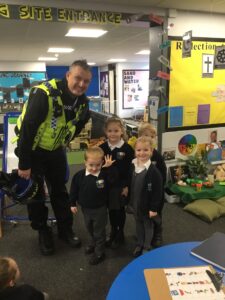
Our work on festivals around the world focused on Diwali this week. Diwali is also known as The Festival of Light. We learnt more about how Diwali is celebrated and joined in with the celebrations. We created our own Diva Lamps using dough and decorated them with bright colours.
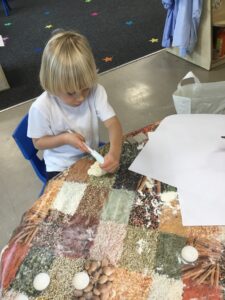
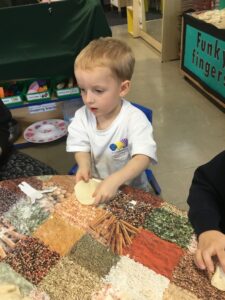
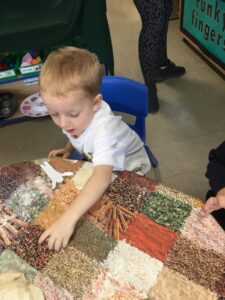
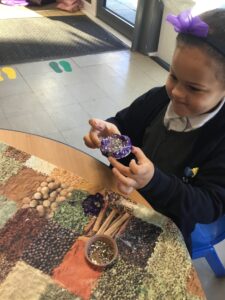
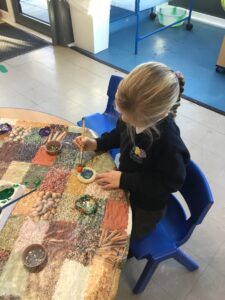
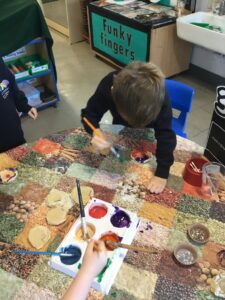
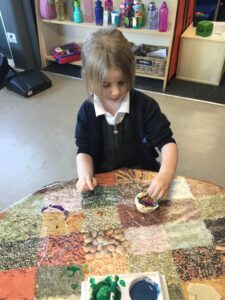
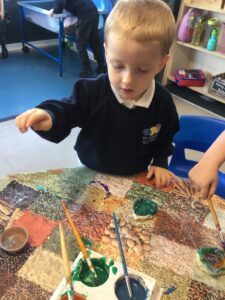
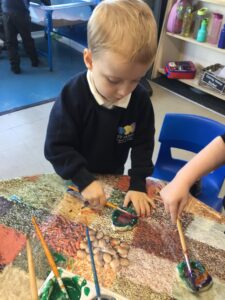
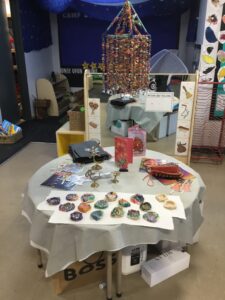
Quick reminders:
We have two fantastic maths events coming up this month. There will be an early maths zoom session on Monday 14 November at 6pm. Zoom details will be emailed out to everyone shortly. We also have our marvellous maths session. This is a great opportunity for you to come into class and see a live maths session. This will be on Thursday 17 November 9 – 9:30.
Thank you for all parents/carers who are helping us with our e-books. We would like all children to be reading everyday. If you have any problems logging in please don’t hesitate to contact me.
Mrs Payne
Spellings
I hope you have all had a healthy and happy half term, ready for more super spellings!
In Year 2, we will continue to learn our spellings over a cycle of 2 weeks. This means our next spelling check will be on Friday 18th November.
Our spellings will be: school, she, so, some, the, there, their, they, to, today.
Their – used to talk about when something belongs to someone e.g. ‘That is their classroom.’
There – used to explain where something is e.g. ‘The classroom is over there.’
04 November 2022
As we come to the end of our Me and My Communities themed week, children are encouraged to consider charities that are community-based.
With your child, have a look at the list of charities below. Ask your child to consider which charity they’d like to be our chosen school charity – make sure they can express their opinions and back these up with reasons.
Below are the chosen charities that we’ll choose from:
Local
St Gemma’s Hospice St Gemma’s Hospice | Yorkshire’s Largest Hospice (st-gemma.co.uk)
The Clothing bank The Clothing Bank
National
Cancer Research Donate to Cancer Research UK | Cancer Research UK
RSPB Join us – RSPB Membership
International
Cool Earth Protect Rainforest | Fight The Climate Crisis | Join Cool Earth Big Life Foundation AREA OF OPERATION – Big Life Foundation
The charities will be reviewed in class on Thursday 10 November. Each class will vote for one charity which will be brought to the Junior Leadership Team who will have the final vote on Friday 11 November.
Community Green Group visit
This week, we have been lucky to have lots of visits into school for our Community Week. The children have enjoyed having different visitors in school and learning about all the things that go on in our community.
This week, we enjoyed a visit from Wetherby and Boston Spa Community Green Group. The children learned all about how the group helps preserve the environment and help the local wildlife. We talked about how the children could help the environment: recycling, turning lights off, or eating less meat, and how we could help the local wildlife: by creating bug hotels, hedgehog highways, or planting bee-friendly flowers.


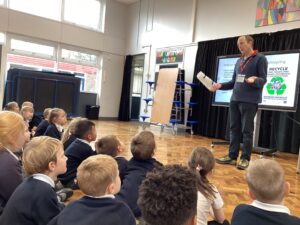
We finished by looking at the “8 to be great” promise. Can you promise to be any of the 8 to be great?

Me and My Community
Today, in Reception and Key Stage 1, we had a special visit from Wetherby in Bloom. They are a charity who make Wetherby a nice place to live and visit by planting beautiful, colourful flowers around the town. After we had discussed how the charity supports our community, we had the opportunity to plant our own daffodil bulbs. These will bloom in Spring!
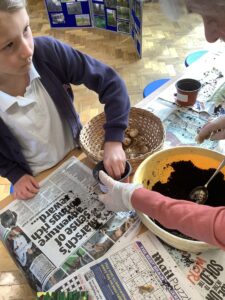
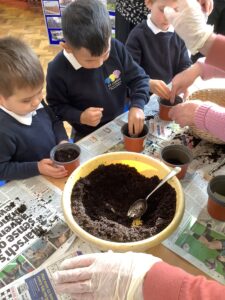
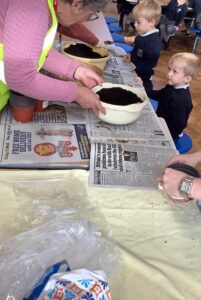
Me and My Community
Today, in Key Stage 1, we had a special visit from a PCSO (Police Community Support Officer). We talked about what a PCSO does as part of their job and their responsibilities within our community. The PCSO has an important job in schools too – working with children to help them make the right choices.


Community Week: The Mayor of Wetherby
To kick start our community themed week, we welcomed the Mayor of Wetherby into school. Councillor Neil O’Byrne was elected as Mayor and he’s is in his third term of office.
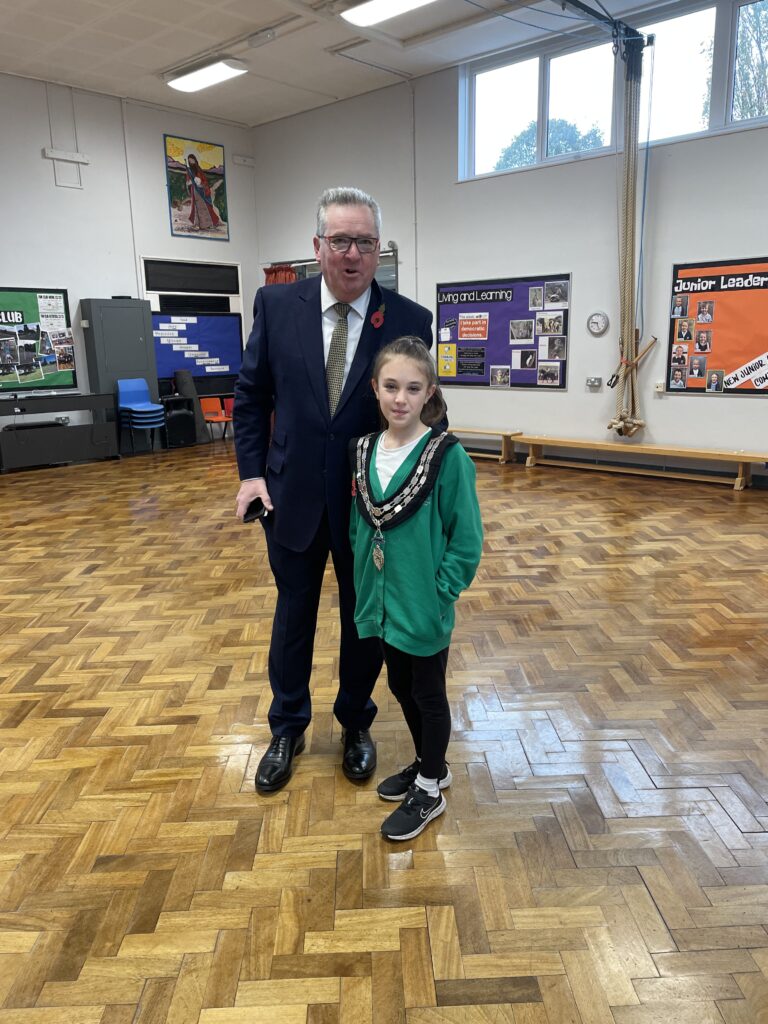
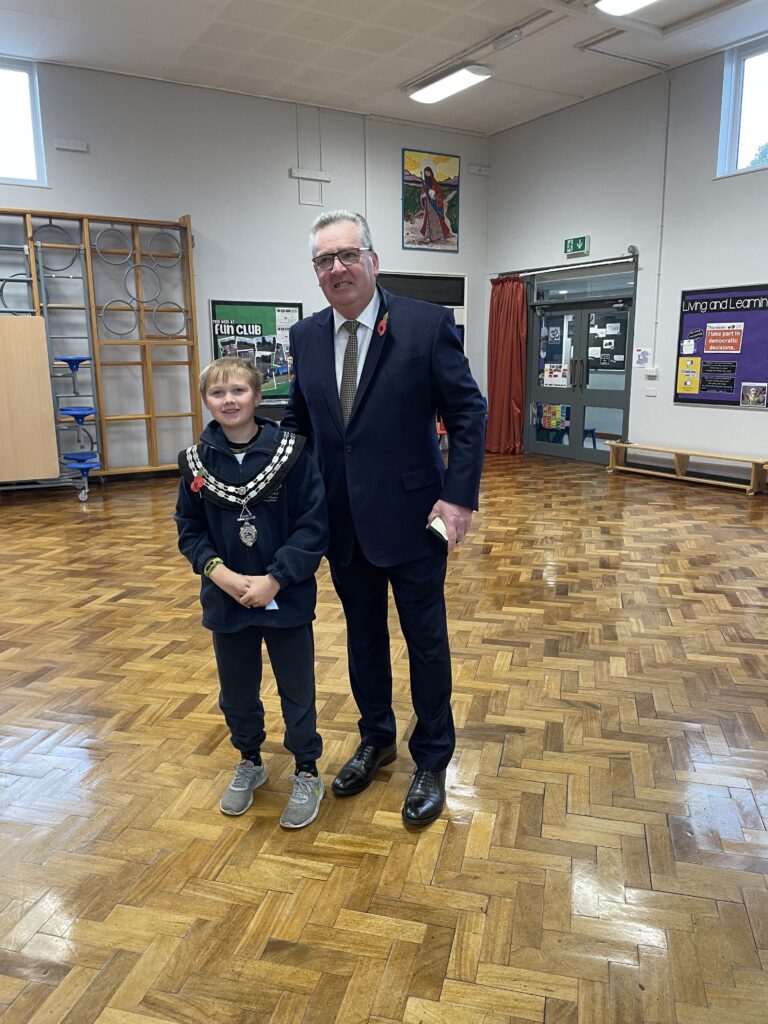
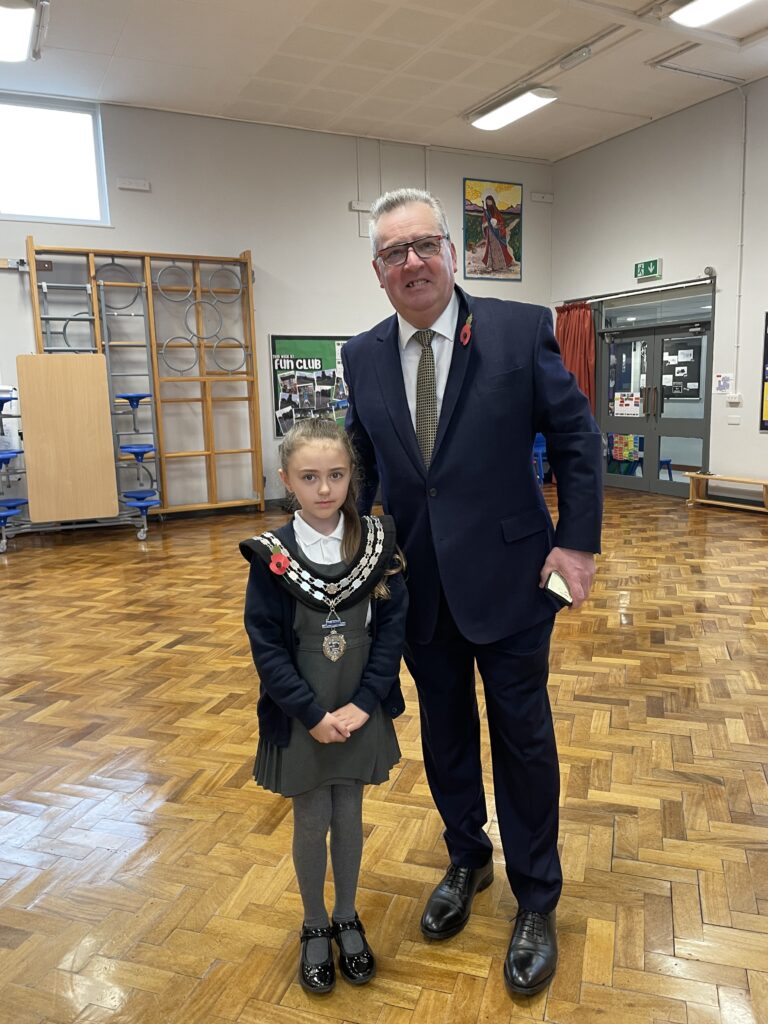
The children listened to the Mayor as he explained his role in the community. Following this, the classes were able to ask questions.
Do you get paid?
Who voted for you and was it fair?
Do the people of Wetherby vote?
Why do you wear the chains around your neck?
Have you made a difference to the people and town of Wetherby?
Was there an election?
Don’t forget, the Mayor will be lighting the Wetherby bonfire on Saturday!

Me and My Community: Identity
This week, in Living and Learning, we have a special themed week. We are thinking about ‘Me and My Community’. Today, we have explored our identity and thought about what makes us unique and special.


